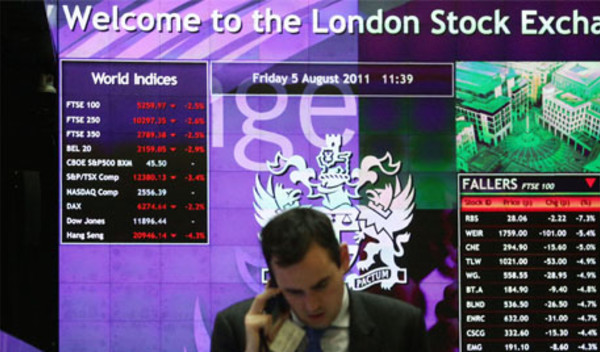

Investors have been warned not to call the top of the UK equity market after the FTSE 100 index reached an all-time high last week.
In spite of the main UK index breaching the psychologically important barrier, investor sentiment towards UK equities seems to be falling.
The FTSE 100 closed at a record high of 6,949.63 last Tuesday, surpassing the previous record set on December 30 1999 at the height of the dotcom bubble.
But while the previous peak marked the start of a severe sell-off that has taken 15 years to recover from, market experts thought the index could continue to grow this year as it had a very different make-up than it had previously.
The price-to-earnings ratio of the FTSE 100 market was roughly 30 times back in 1999, but it is now nearly 50 per cent cheaper at 16 times.
Charles Hepworth, investment director at Gam, said not only was the price-to-earnings ratio for the index more favourable than in 1999 or in 2007, it was also cheaper on a price-to-book basis.
He argued fundamental analysis showed the index was justified to be at its current level and said he was “optimistic the market can make further gains, with the FTSE 100 trading towards an upper range of 7,500”.
Gavin Haynes, managing director of Whitechurch Securities, said investors could also gauge the “attractiveness of shares” by looking at the dividend yield. He pointed out the FTSE 100 yield of 3.5 per cent was “compelling in a low interest rate environment compared with cash and bonds”.
The FTSE 100 yielded just 2 per cent in 1999 as the market chased technology and telecommunications stocks, which made up more than 20 per cent of the index.
However, technology stocks now make up just 7 per cent, while less than half of the companies that made up the index back in 1999 remain.
Although the fundamentals behind the FTSE 100 have changed significantly since its previous high, recent sentiment surveys showed investors had started to take a more cautious view on the UK market.
A survey of 957 users of website Morningstar.co.uk – conducted annually by the Association of Investment Companies – found investors were more cautious than they had been in recent years, in spite of markets achieving all-time highs.
The survey found 49 per cent of investors planned to increase their equity exposure in the next few months, down from 56 per cent in 2014 and 55 per cent in 2013.
The proportion of respondents to the Morningstar survey that listed the UK market as their favoured investment fell by 11 percentage points to 24 per cent from 35 per cent last year.
In addition, the most recent fund manager survey from Bank of America Merrill Lynch in January found that allocations to UK equities had fallen to a net underweight position of 24 per cent, the most bearish reading for UK equities since September 2011.
Max King, a portfolio manager and strategist at Investec Asset Management’s multi-asset team, said this signalled that even though the market had reached a new high, “the euphoria that marked 1999 and 2007 is notably absent”.
FTSE 100 record high: psychologically vital or irrelevant?
While managers are insisting that the FTSE 100 finally surmounting the 1999 high does not mean much – as they tend to look at individual stocks – it could be a watershed moment for investors.
The barrier had become a major issue for UK equities, shown by the FTSE 100 coming within 100 points of reaching it on 20 separate days in the past two years, only for investors to take fright and start selling.
Rowan Dartington investment director Tim Cockerill said that surpassing the previous high was psychologically “vital” for investors.
“It perhaps puts behind us the events of the past 15 years and says we can move forward,” he said.
Mark Wharrier, manager of the BlackRock Income and Growth fund, said: “It’s not a landmark when you’re running money.
We look at individual investments rather than the index.
“However, it has more resonance from an investor’s point of view.”



